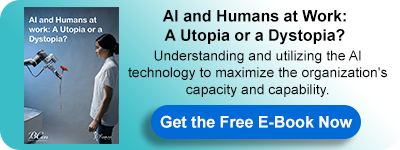Peeping through the AI Window
"Our intelligence is what makes us human, and AI is an extension of that quality."
— Yann LeCun Professor, New York University
Artificial intelligence is defined as "the ability of a digital computer or computer-controlled robot to accomplish tasks often associated with intelligent beings," according to Britannica. Yet, digging a bit deeper, we can look at how Alan Turning, the AI God Father, For the second time, a simple inquiry transformed history: "Can robots think?" It's been less than a decade since the Nazi encryption system Enigma was cracked, and assisting the Allies in winning World War II, mathematician Alan Turing changed history again with a simple question: "Can machines think?"
Turing set the core purpose and vision of artificial intelligence in his work "Computing Machinery and Intelligence" (1950) and the subsequent Turing Test.
AI is, at its most basic level, a discipline of computer science whose goal is to validate Turing's question. It is the goal of artificial intelligence to mimic or recreate human intelligence.
"Artificial intelligence" has become a catchall word for any developments in computing, systems, and technology that allows computer programs to complete tasks or solve problems that necessitate the type of reasoning we associate with human intelligence, such as learning from prior operations AI relies heavily on this ability to learn.
Algorithms are frequently associated with AI, such as the dreaded Facebook algorithm that replaced all of our friends with sponsored material. There is, however, a crucial distinction to be acknowledged. A formula for processing data is called an algorithm, which is basically a "series of instructions." This is taken a step further with AI, which consists of a set of algorithms that can change and rewrite themselves in response to the data inputted, displaying "intelligence."
AI: A Helpful Hand in the Workplace 1
AI will become more prevalent in how we are employed and onboarded, as well as how we go about on-the-job training, personal growth, and eventually passing on our skills and knowledge to those who will follow in our footsteps.
1. Recruitment
Before we even step into a new office, AI-enabled machines may have played a role in ensuring we're the proper person for the job.
AI pre-screening of candidates before inviting the most qualified in for interviews is becoming more common at large companies that make thousands of hiring each year and often receive millions of applicants.
2. Boosting Productivity
Businesses are employing artificial intelligence to increase employee productivity. One of the benefits of AI for business is that it automates repetitive tasks across the organization, allowing employees to focus on innovative solutions, complex problem solving, and high-impact work. Chatbots are an example of this.
AI-operated chatbots have become essential for teams that have daily, direct encounters with customers and rely on prompt, accurate, and responsive customer service.
Chatbots have substantially reduced the amount of time it takes to complete these tasks manually, from gathering data to starting the process of reporting client complaints. It has also improved the overall client experience. Reducing administrative activities will also help your customer service operations reduce human error. Another use for Chatbots is Onboarding.
AI-enabled chatbots are the current go-to tool for assisting new hires in settling into their employment and learning about the different aspects of the companies they've joined during the Onboarding phase.
3. Turn Chunks of Data into Usable Insights
Artificial intelligence has made it feasible to get insights from data that formerly required a significant amount of time and manual labor.
The potential of employees has been unlocked, and it can now be used to improve customer service and make better business decisions.
One example is a bank that uses AI to recommend financial products. The recommendations are based on an AI analysis of available funds, current market conditions, and previous client decisions.
4. On the Job Training
Artificial intelligence will also help with the transfer of skills from one generation to the next: if employees either leave the company or retire., it will make it easier for them to both go and take with them. the valuable experience they've gained with them.
Honeywell has created tools that combine augmented and virtual reality (AR/VR) with artificial intelligence (AI) to capture work experiences and extract "learning" that can be passed on to new workers.
1 Beekeeper, 23 May 2021, Cristian Grossman, 3 Surprising Benefits of Artificial Intelligence in the workplace, Accessed 1 Mar 2022, https://www.beekeeper.io/blog/3-reasons-you-want-ai-in-the-workplace/ Forbes, 29 May 2019, Bernard Marr, Artificial Intelligence in the workplace: How AI is transforming your employee experience, Accessed 1 Mar 2022, https://www.forbes.com/sites/bernardmarr/2019/05/29/artificial-intelligence-in-the-workplace-how-ai-is-transforming-your-employee-experience/?sh=243809ae53ce
For more about this topic, download our latest book " AI and Humans at Work: A Utopia or a Dystopia? " for FREE:
